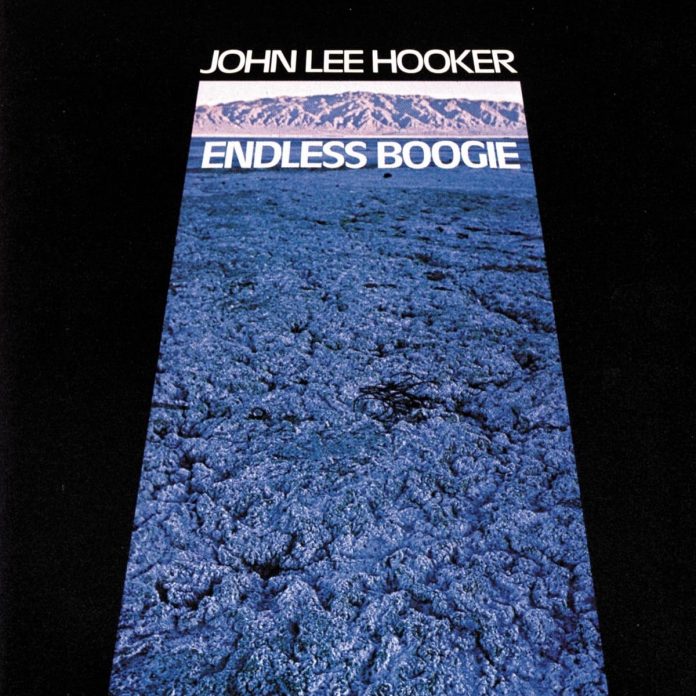I’ve never thought that John Lee Hooker needed company on his records; however, if it’s really necessary to back him up, then the sparser the accompaniment, the better, and I feel that this album would have come much nearer to succeeding without the hordes behind Hooker.
There are two main reasons for this. First, Hooker has always taken considerable liberties with timing and construction, and he’s never seen any reason to restrict the length of his choruses to twelve bars; and of course, he shortens them too whenever he feels like it. A good bassist and drummer could perhaps follow John’s every move if they were really with what was happening, but backing groups of this size have had it – when Hooker starts to mess about, they can either try to follow him, and leap into chaos, or they can stay where they are and hope John will come back soon. This is what happens on Crossroads, where Hooker and his accompanists sail helplessly in two different directions.
Second point: chord sequences don’t bug Hooker (he’s one of the original exponents of Free Jazz), and he often plays one chord throughout a number. If he’s alone, his busy, unorthodox guitar can compensate, but to listen to an electric band slamming one chord on some of the immensely long and extremely slow blues on this record is mostly a hell of a drag.
Generally, I’d compare this album to the most recent Ben Webster LP I’ve heard: Ben’s beautiful tone was still there, but he wasn’t saying much with it; the unparalleled richness of Hooker’s voice is still magnificently intact (very well recorded, incidentally), but the performances as a whole are perfunctory. The blues dedicated to Jimi Hendrix and Janis Joplin, for instance, quickly becomes a generalised warning against the use of drugs, with the recurrent line ‘the needle’s too heavy for your heart’; this is a good enough image, I suppose, but it loses its impact somewhat after being repeated over and over and over again. There are a few dimples on the face of Pots On, and the number is less than a gas.
If they’d recorded exactly the same number of tunes, but cut them down and stuck them on one LP, we’d have had a record that sounded good, although without much depth, I feel; as it is, the first word of the title of the collection is a bit too accurate for comfort.
Discography
(b) I Got A Good ’Un; (f) House Rent Boogie; (c) Kick Hit 4 Hit Kix U (Blues For Jimi And Janis) (18 min) – (d) Standin’ At The Crossroads; (a) Pots On, Gas On High (17½ min) – (a) We Might As Well Call It Through (I Didn’t Get Married To Your Two-Timing Mother); (g) Doin’ The Shout; (h) A Ship Out On The Foam (18 min) – (i) I Don’t Need No Steam Heat; (e) Sittin’ In My Dark Room; (j) Endless Boogie, Parts 27 & 28 (18½ min)
John Lee Hooker (vcl/gtr) with:
(a) Jesse Davis (gtr); Mark Naftalin (pno): Cliff Coulter (el-pno): Carl Radle (bs-gtr); Jim Gordon (dm). San Francisco 10/11/70.
(b) Steve Miller, Mel Brown (gtr); Coulter; Gino Skaggs (bs-gtr): Billy Ingram (dm). Frisco, 11/11/70.
(c) Coulter; Naftalin (gtr): Skaggs; Ken Swank (dm). Same date as (b).
(d) Naftalin (pno); Miller; Skaggs; Swank. Same date.
(e) as for (b), plus Naftalin (pno). Same date.
(f) Naftalin (pno); Dave Berger (hca); Miller; Dan Alexander (gtr); Skaggs; Swank. Frisco, 12/2/70.
(g) Miller; Skaggs; Swank. Same date.
(h) Coulter; Alexander; Skaggs; Swank. Same date.
(i) Naftalin (pno); John Turk (el-pno); Miller, Brown (gtr); Coulter (bs-gtr); Reno Lanzara (dm). Same date.
(j) Naftalin (pno); Turk; Miller, Coulter, Brown, Jerry Perez (gtr); Berger; Lanzara; Swank (tamb). Same date.
(ABC ABCD-720 Double album £5.96)
















